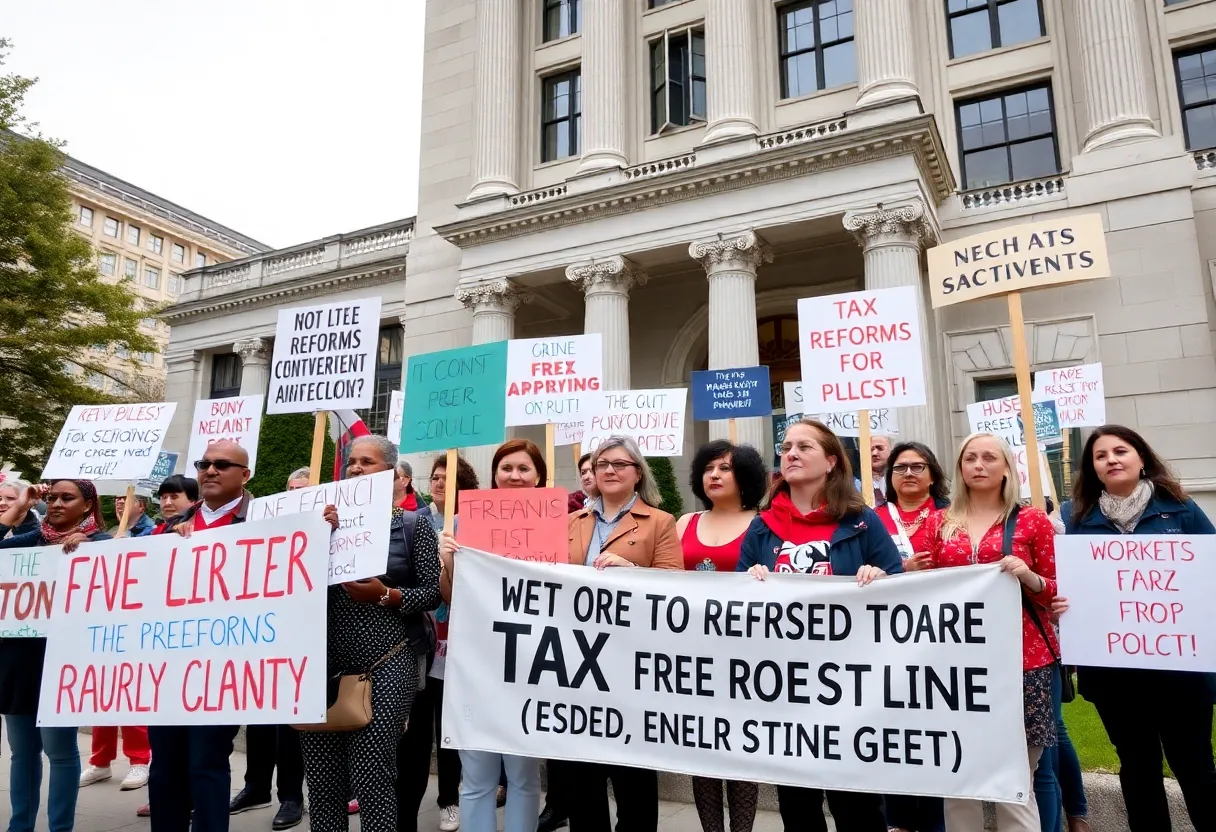News Summary
Two prominent law firms in Boston, Goodwin Procter LLP and Ropes & Gray LLP, are facing investigation by the EEOC regarding their diversity, equity, and inclusion practices. The agency is scrutinizing the firms’ hiring tactics and treatment of diverse candidates amidst a larger initiative targeting discrimination in workplaces. Legal experts and the public are reacting to the inquiry, which raises significant questions about compliance with employment laws and the effectiveness of DEI initiatives in the legal industry.
Boston Law Firms in the Spotlight Over Diversity Practices
In a notable development within the legal community, two prominent law firms in Boston, Goodwin Procter LLP and Ropes & Gray LLP, recently received letters from the Trump administration. These letters were sent on Monday as part of a bigger effort by the U.S. Equal Employment Opportunity Commission (EEOC) that targets diversity, equity, and inclusion (DEI) practices at twenty major law firms across the nation.
What’s the Big Deal?
The EEOC, which aims to tackle discrimination in workplaces, is keen on investigating whether elite law firms are upholding fair employment practices. The agency’s Acting Chair is spearheading this initiative, stressing that every organization is accountable to the law, no matter their stature. The letters sent to the law firms aim to clear the air around their hiring practices and treatment of diverse candidates.
However, the firms have remained tight-lipped and have yet to comment publicly on the EEOC’s inquiry. Surprisingly, the EEOC has not detailed the criteria for selecting these particular firms, which has sparked curiosity and concern among legal experts and firm associates alike.
Community Reactions
Not everyone is on board with this investigation. The Lawyers’ Committee for Civil Rights Under Law has publicly criticized the EEOC’s actions, asserting that the acting chair may not have the authority to represent the agency effectively. This claim stems from the instability within the commission, following a series of recent terminations.
Adding to the controversy, the letters sent out express concern that the DEI efforts at these law firms may inadvertently violate Title VII of the Civil Rights Act. This law plays a crucial role in prohibiting discrimination based on race, gender, and religion in employment settings.
A Closer Look at the Data Requests
In an eye-catching move, the EEOC’s letters requested detailed spreadsheets concerning personal information about applicants. This includes data on diversity internships, fellowships, and partnership roles, such as names, sex, race, law schools attended, GPAs, and contact details. The request doesn’t stop there; it also seeks information on compensation packages, bonuses, promotions, and recruitment strategies used by the firms to attract diverse candidates.
Expert Opinions
Academic voices have raised concerns over these requests. Some experts, like Erika George from Massachusetts, have criticized the EEOC’s approach as contradictory, doubting its good faith. Meanwhile, Kenneth Mack from Harvard characterized the information request as overly intrusive, suggesting it may resemble a “fishing expedition” aimed at gathering personal information from those who belong to underrepresented groups.
Another law firm that is part of this scrutiny, Perkins Coie, has also faced tensions with the Trump administration in the past. The firm has drawn attention due to prior negative perceptions regarding its relationships with government entities, especially following executive orders limiting government collaboration.
Responses from the Legal Community
The atmosphere is tense, and law firm associates are not staying silent. Many have banded together to sign an open letter urging resistance against these actions from the administration. They argue that this move poses a serious threat to powerful legal professionals and undermines the efforts aimed at building a more inclusive and equitable legal community.
As the law firms prepare their responses to the EEOC’s demands, with a deadline set for April 15, the brewing controversy raises important questions about the balance between promoting diversity and ensuring fair hiring practices. How this situation unfolds will be crucial for the future of DEI initiatives in the legal industry.
Deeper Dive: News & Info About This Topic
HERE Resources
Boston’s Trust Act Under Review Amid Political Turmoil
UMass Faces Scrutiny Over Fundraising Department Changes
Governor Healey Advocates Against NIH Funding Cuts
Women Still Underrepresented in Business Leadership in Massachusetts
Massachusetts Courts Clarify Chapter 93A Requirements for Business Claims
Additional Resources
- Reuters: US Civil Rights Agency Warns Law Firms Over Workplace DEI Policies
- Wikipedia: Diversity and Inclusion
- Boston Globe: Trump EEOC Anti-DEI Law Firms
- Google Search: Workplace Diversity
- ABA Journal: Slow Going Despite Diversity Gains
- Google Scholar: Diversity in Law Firms
- Seyfarth: Spotlighted for Diversity, Equity, and Inclusion
- Encyclopedia Britannica: Equal Employment Opportunity Commission
- David Lat: On the Need for Diverse Viewpoints
- Google News: Diversity in Law Firms








